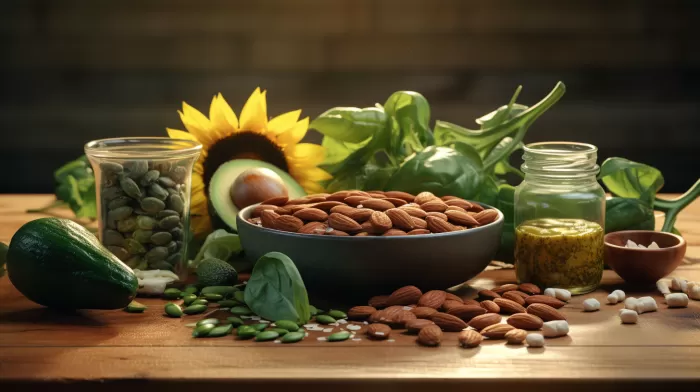Eating a diet rich in vitamin E is crucial if you want to protect your brain from diseases like dementia and Alzheimer’s. While everyone knows it’s essential to eat healthily, recent research from the Netherlands shows that consuming high levels of vitamin E daily can reduce your risk of developing these cognitive issues by a staggering 25 percent. After studying over 5,000 participants for almost a decade, scientists discovered that dietary vitamin E can protect the brain from oxidative damage that can accumulate over time and lead to cognitive decline.
How Vitamin E Protects Your Brain
The brain is a powerhouse of metabolic activity, making it susceptible to oxidative damage. The constant creation of reactive oxygen species (ROS) and free radicals can result in damage to brain cells. Over time, this damage can build up, leading to various forms of cognitive decline, including dementia.
Vitamin E, a powerful fat-soluble antioxidant, steps in to save the day. It helps to neutralize and protect against the harmful effects of ROS and free radicals by combating oxidative stress. This protection slows down the accumulation of oxidative damage and, in turn, may help to prevent the onset of dementia.
Best Food Sources of Vitamin E
Ready to incorporate more vitamin E into your diet? Here are some excellent sources of this brain-boosting antioxidant that you can easily add to your meals.
Turnip Greens
Turnip greens are not only a great source of vitamin E, but they’re also packed with essential vitamins and minerals like calcium, magnesium, and vitamin K. Add these nutritious greens to your salads, soups, or stir-fries to reap the benefits.
Chard
Chard is another leafy green that’s rich in vitamin E. It’s also a good source of vitamins A and K, calcium, and iron. Enjoy chard sautéed with garlic, mixed into a frittata, or added to a savory tart or pasta dish.
Almonds
These tasty nuts are packed with vitamin E and heart-healthy monounsaturated fats. They’re also an excellent source of protein, magnesium, and fiber. Snack on almonds, add them to your cereal, or use them as a crunchy topping for salads and yogurt.
Spinach
This leafy green is not only a good source of vitamin E, but it’s also high in folate, iron, and vitamin K. Use fresh spinach in salads, add it to your morning smoothie, or cook it into sauces and soups.
Sunflower Seeds
These crunchy seeds are loaded with vitamin E, making them a delicious and healthy snack. They’re also an excellent source of B vitamins, magnesium, and selenium. Add them to your oatmeal, trail mix, or sprinkle them on top of a salad.
Mustard Greens
Like turnip greens, mustard greens provide a healthy dose of vitamin E and other nutrients like vitamins A and K, calcium, and potassium. Their slightly peppery flavor works well in salads, stir-fries, or as a tasty side dish sautéed with garlic and olive oil.
Boosting Your Vitamin E Intake
Remember, it’s always best to get your vitamins and nutrients from whole foods, not supplements. So as you start incorporating more vitamin E-rich foods into your diet, focus on choosing a variety of options to ensure you’re also getting a balanced mix of other essential vitamins and minerals. This will not only help you to better maintain your overall health, but it’ll also provide you with the tools needed to lower your risk of developing cognitive issues like dementia and Alzheimer’s.
Don’t just sit back and let cognitive decline take over your brain as you age. Be proactive in maintaining your mental health by fueling your body with the brain-boosting power of vitamin E. By choosing foods high in this essential antioxidant, you’ll be giving both your body and your mind the tools they need to stay healthy for years to come.
For more information on the benefits of vitamin E and brain health, I recommend checking out authoritative health websites like WebMD, Healthline, and Medical News Today. These resources provide science-backed articles with valuable insights on maintaining optimal cognitive function and living a health-conscious lifestyle.



